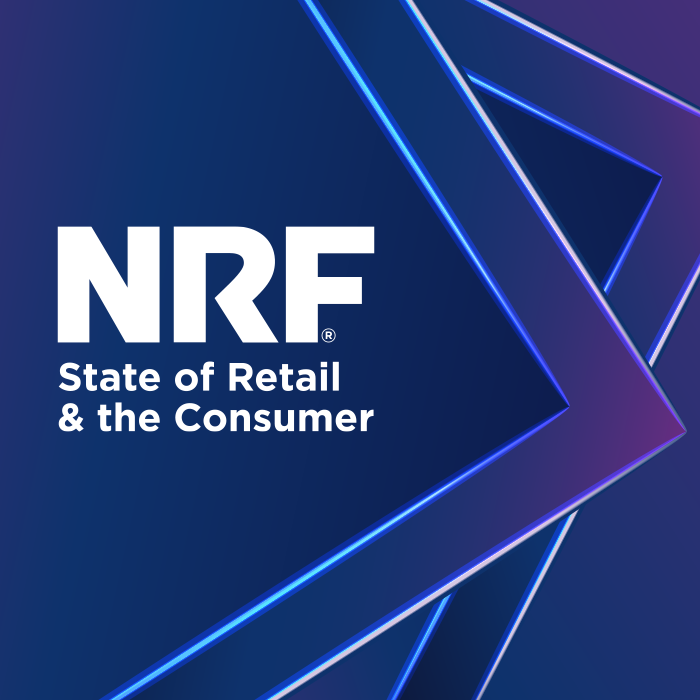NRF Welcomes Court Ruling Overturning Debit Card Swipe Fee Cap as Too High
“As merchants have argued for 14 years, the Fed’s broad attempt to allow big banks to essentially charge rent-seeking fees for debit card transactions is illegal. That question is now settled."
WASHINGTON — The National Retail Federation today welcomed a federal judge’s ruling overturning the Federal Reserve’s 2011 cap on debit card “swipe” fees in response to a merchant’s lawsuit that said the Fed set the cap too high.
“As merchants have argued for 14 years, the Fed’s broad attempt to allow big banks to essentially charge rent-seeking fees for debit card transactions is illegal,” NRF Chief Administrative Officer and General Counsel Stephanie Martz said. “That question is now settled. If the Durbin Amendment is to mean anything, it’s that there are specific costs that banks can recover from merchants, and costs that they categorically cannot recover from merchants. This court was correct in discerning this distinction. And the court was correct in requiring the Fed to set rates based on individual transactions, not a blended average. We fully expect this decision to be sustained on appeal, and to save merchants hundreds of millions of dollars.”
U.S. District Judge Daniel Traynor on Wednesday granted summary judgment in a 2021 federal lawsuit filed by Corner Post, a Watford City, N.D., truck stop and convenience store. Traynor vacated the Fed’s cap on debit card swipe fees but said that part of the order would be placed on hold pending any appeal “in order to prevent interchange transactions from becoming a completely unregulated market.” Traynor said his order does not prevent the Fed’s proposed reduction in the cap, which has been pending since 2023, from taking effect if the Fed moves forward with the reduction.
Corner Post was joined in the lawsuit by the North Dakota Retail Association and the North Dakota Petroleum Marketers Association. NRF is not a party, but Martz is a co-counsel in the case. The U.S. Supreme Court last year allowed the case to move forward despite the Fed’s position that it was blocked by a six-year statute of limitations.
The lawsuit says the Fed set the cap higher than allowed under the Durbin Amendment, a 2010 law directing it to adopt regulations resulting in debit card swipe fees that were “reasonable” and “proportional” to banks’ costs. Congress limited costs the Fed could consider to incremental expenses, and the Fed initially proposed a limit of 7-12 cents per transaction. Under pressure from banks, however, it also took fixed costs, fraud losses, transaction monitoring and network processing fees into consideration. The final cap, which applies only to financial institutions with at least $10 billion assets, was set at 21 cents plus 1 cent for fraud prevention and 0.05% for fraud loss recovery.
Since then, the Fed has reviewed banks’ costs every two years as required by the Durbin Amendment but has not kept the cap proportional to falling costs. A Fed survey found banks allowable costs averaged 7.7 cents per transaction as of 2009, meaning the cap was originally less than three times the cost. A survey showed the average had dropped to 3.9 cents by 2021, making the cap over five times banks’ costs.
In October 2023, the Fed proposed lowering the cap to 14.4 cents per transaction and reducing the amount for fraud loss to 0.04% but raising the amount for fraud prevention to 1.3 cents. In 2024, NRF filed comments saying the base rate should be 10.5 cents to keep it at the original proportion, although tiered rates could be set based on banks’ debit card transaction volume. NRF said the 1 cent for fraud prevention should be eliminated since adoption of EMV chip cards in 2015 shifted fraud costs to merchants, and that the percentage for fraud cost should be based on banks’ net costs after considering fraud borne by merchants.
Before Durbin, banks charged about 45 cents to process a typical debit transaction, and regulation has saved merchants $9.4 billion a year, with studies showing 70% of the savings has been passed on to consumers. Debit and credit card swipe fees are most merchants’ highest cost after labor and drive up prices by nearly $1,200 a year for the average family. Debit swipe fees totaled $38.7 billion in 2024 and total swipe fees have more than doubled over the past decade to a record $187.2 billion.
As the leading authority and voice for the retail industry, NRF has led retailers’ fight for fair swipe fees for more than 20 years.
About NRF
The National Retail Federation passionately advocates for the people, brands, policies and ideas that help retail succeed. From its headquarters in Washington, D.C., NRF empowers the industry that powers the economy. Retail is the nation’s largest private-sector employer, contributing $5.3 trillion to annual GDP and supporting more than one in four U.S. jobs — 55 million working Americans. For over a century, NRF has been a voice for every retailer and every retail job, educating, inspiring and communicating the powerful impact retail has on local communities and global economies. nrf.com





